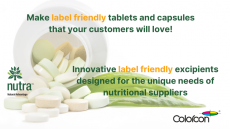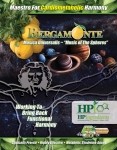Soy isoflavones may halve prostate cancer risk
cancer by 58 per cent, suggests a new study from Japan.
The research, published in the Journal of Nutrition , adds to an earlier study that claimed to be the first prospective study to report an inverse association between isoflavone and prostate cancer in Japanese men ( Cancer Epidemiology Biomarkers & Prevention , Vol. 16, pp. 538-545).
Over half a million news cases of prostate cancer are diagnosed every year world wide, and the cancer is the direct cause of over 200,000 deaths.
More worryingly, the incidence of the disease is increasing with a rise of 1.7 per cent over 15 years.
The new case-control study recruited 200 Japanese men with different stages of prostate cancer - one case of Stage 1, 131 cases of Stage 2, 44 cases of Stage 3, and 24 cases of Stage 4 - and compared their dietary intakes with 200 healthy male controls.
The intake of 12 food items was measured: tofu (soybean curd), natto (fermented soybeans), miso soup (soybean paste soup), bean curd refuse, fried bean curd, fried bean curd with vegetables, soy flour, dried bean curd, soybean milk, soy sauce, green soybeans, and bean sprouts.
The researchers report that an increased intake of the soy isoflavones genistein and daidzein and their aglycones was significantly associated with a decreased risk of prostate cancer.
The highest average isoflavone intake (89.9 mg/d) was associated with a 58 per cent reduction in risk compared with the lowest average isoflavone intake (less than 30.5 mg/d).
They also report that the isoflavone intake was correlated with magnesium and omega-3 and omega-6 fatty acid intake, since soy products are also rich sources of these nutrients.
"On the other hand, isoflavone significantly decreased the risk of prostate cancer regardless of adjustment by PUFA, (omega-6) fatty acids or magnesium," they said.
The researchers indicated that the results may not be generalized to other populations since the traditional Japanese is a rich source of dietary isoflavones.
"Serum phytoestrogen concentrations are higher among Japanese men and women than among those in Western countries," they said.
The earlier study linking isoflavones to potential protection from prostate cancer stated that the benefits could be due to the weak oestrogenic activity of soy isoflavones, which may act to reduce testosterone levels and inhibit 5 alpha-reductase - an enzyme involved in the metabolism of testosterone.
Corresponding author Tomoko Sonoda told NutraIngredients.com: "Our group is performing the intervention study of isoflavone supplement and analyzing the interaction of estrogen related gene and isoflavone intake on prostate cancer risk."
Source: Journal of Nutrition August 2007, Volume 137, Pages 1974-1979 "Dietary Isoflavones May Protect against Prostate Cancer in Japanese Men" Authors: Y. Nagata, T. Sonoda, M. Mori, N. Miyanaga, K. Okumura, K. Goto, S. Naito, K. Fujimoto, Y. Hirao, A. Takahashi, T. Tsukamoto and H. Akaza








